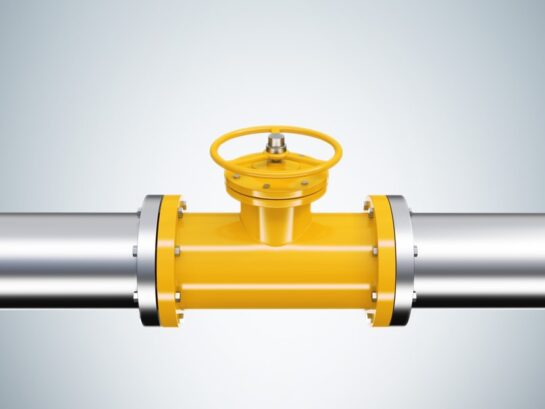What is Helium Mass Spectrometer Leak Testing (MSLT)?
A helium mass spectrometer is an instrument commonly used to detect and locate small leaks. It was initially developed in the Manhattan Project during World War II to find extremely small leaks in the gas diffusion process of uranium enrichment plants. Today, it is the most common way to find leaks in high and ultra high vacuum systems. Helium can be used in a multitude of ways and processes to detect the smallest of leaks in a part.
Why Use Helium for Leak Testing?
Helium is great for leak testing for a multitude of reasons. First, it is an extremely safe gas. It is nontoxic, inert, inflammable, and non-reactive. The only danger with helium is that it could cause asphyxiation. However, this is extremely unlikely in a normal leak testing setting. Next, helium molecules are small. The only molecule that is lighter is hydrogen which is more dangerous as it is flammable and can be reactive. Helium is able to flow through the tiniest of leaks and ensure that none are missed without causing any problems.
Helium is also used for leak testing because there is only a tiny amount (5 ppm) of it in the atmosphere naturally. So, the mass spectrometer can be calibrated to ignore the atmospheric helium and only pick up the helium coming through a leak. This makes the testing extremely precise. In most helium leak testing applications, a mass spectrometer is used to detect helium.
Helium Leak Testing Techniques
Sniffing
Sniffing uses a probe, also called a gun, to “sniff” around the likeliest areas for a leak such as joints or gaskets. Sniffing heavily relies on the operator's skill in order for the probe to be placed in the right position to catch a leak. This type of helium leak testing will be unable to locate the smallest leaks.
Spray
For this method, helium is sprayed over the outside of the tested part. Then, a leak detector is connected to the item to see any evidence of leaks and helium making its way into the part.
Bagged
For this method, the part that is being tested will be placed in a pressurized helium chamber and sealed in. Then, the sniffer probe is connected to the container to detect leaks. This is a useful testing method because the pressurized helium chamber allows for any leaks to be easily detected and pinpointed precisely.
High vacuum testing
High vacuum testing will detect the smallest of leaks, but it is a more intensive process. It is the opposite of the bagged method. In this method, the item being tested is instead pressurized with helium. Then, a sample of the gas within the chamber moves into the mass spectrometer to read the amount of helium in the chamber.
The Importance and Value of Helium Mass Spectrometer Leak Testing
Helium mass spectrometer leak testing is important for ensuring the quality of products going out to customers or the parts being received. Since helium is such a small molecule, the smallest of leaks can be detected and prevented. Even a small leak can have catastrophic consequences over time. There could eventually be large machinery failure as a result of a miniscule pin prick leak. Helium also leaves no residue, which greatly speeds up processing time. Customers will not be satisfied with a product they’re receiving if it has any defects. So, keep a high standard and have perfectly operating parts by utilizing helium mass spectrometer leak testing.
The Benefits of High-Quality Helium Mass Spectrometer Leak Testing
High-quality helium mass spectrometer leak testing future-proofs your operations and ensures pristine parts across the board. This type of testing is extremely sensitive and helium provides the best results. Using helium for leak testing provides the best odds for catching every leak and improving the quality of parts. At Precision Fabricating & Cleaning, helium mass spectrometer leak testing is performed in a diligent and detailed way. The quality and standard upheld will ensure no leaks are present using this precise technology. Contact us today.

